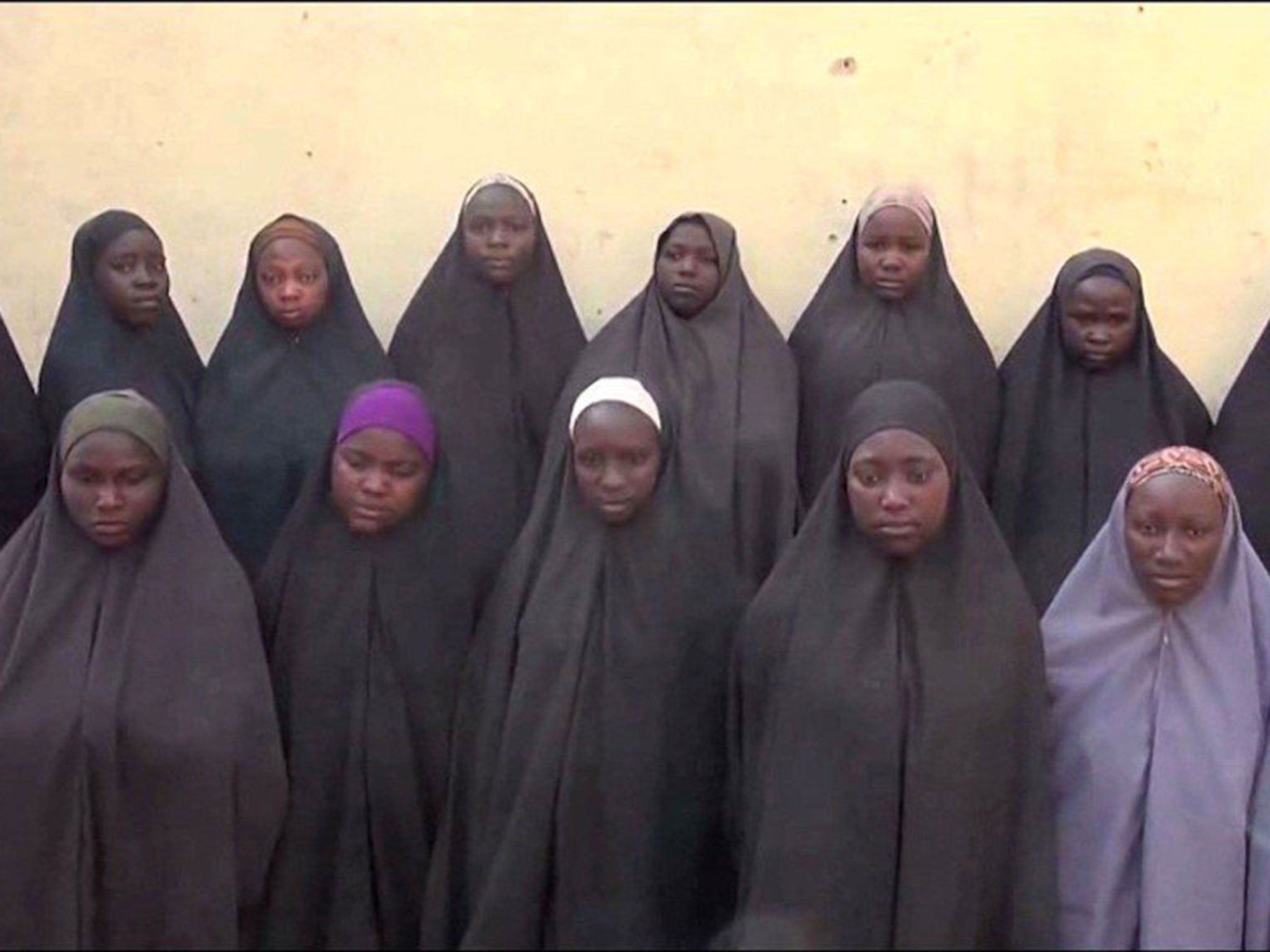Missing Chibok girls kidnapped by Boko Haram shown alive in video
The video shows some of the girls stating their names

Your support helps us to tell the story
From reproductive rights to climate change to Big Tech, The Independent is on the ground when the story is developing. Whether it's investigating the financials of Elon Musk's pro-Trump PAC or producing our latest documentary, 'The A Word', which shines a light on the American women fighting for reproductive rights, we know how important it is to parse out the facts from the messaging.
At such a critical moment in US history, we need reporters on the ground. Your donation allows us to keep sending journalists to speak to both sides of the story.
The Independent is trusted by Americans across the entire political spectrum. And unlike many other quality news outlets, we choose not to lock Americans out of our reporting and analysis with paywalls. We believe quality journalism should be available to everyone, paid for by those who can afford it.
Your support makes all the difference.Boko Haram has released a video appearing to show some of the 276 Chibok schoolgirls still alive two years after they were kidnapped.
At least 15 of the kidnapped students were shown in a video sent to the Nigerian government as "proof of life”.
The footage, obtained by CNN, shows the girls lined up against a wall wearing headscarves and long robes.
Around 219 of the girls taken from the school, in Borno state, remain unaccounted for amid fears some have been killed or forced to become suicide bombers.
Their capture, on 14 April 2014, sparked global condemnation and triggered the Bring Back Our Girls social media campaign, which garnered widespread support from people including Michelle Obama and David Cameron.
In the footage, the first of the girls since May 2014, they are ordered to tell the camera their name.
All girls said they were from the Chibok school and were being filmed on 25 December 2015. One of the girls says they are “all well” as part of what is likely to be a scripted plea to negotiators.
The video was shown to three women whose daughters are among the missing.
“My Saratu,” one woman whispered after seeing her daughter, before they managed to name all 15 girls.
Nigeria’s information minister, Lai Mohammed, said the government was assessing the video.
There's been no word of the girls' welfare since 2014, when Boko Haram leader Abubakar Shekau said they had converted to Islam and threatened to sell them into slavery or forced marriage with his fighters. Many of the girls who have been freed have been pregnant.
The failure of Nigerian politicians and armed forces to rescue the girls brought international condemnation and contributed to President Goodluck Jonathan's election defeat last year.
They are among hundreds of civilians captured by Boko Haram, which is known to force some into combat and take ransom money for others.
International efforts have been launched to locate the girls, with American and British drones finding one group of around 80 captives, but no attempt to reach them has been reported.
Nigeria’s military has citied the same fears in the Chibok case but boasted last week of the release of 11,595 civilian hostages since February, following a series of raids on Boko Haram-controlled settlements.
The United Nations has urged the Nigerian government to intensify efforts to free the schoolgirls, as well as providing more information to distraught families.

“In the last two years, despite re-assurances from those at the highest level of the Nigerian Government, the parents have not seen any concrete progress in locating and liberating their daughters,” a report for the Human Rights Commissioner said.
“The lack of access to information increases the suffering of the abductees’ families through false hopes and frustrations.”
Additional reporting by AP
Join our commenting forum
Join thought-provoking conversations, follow other Independent readers and see their replies
Comments